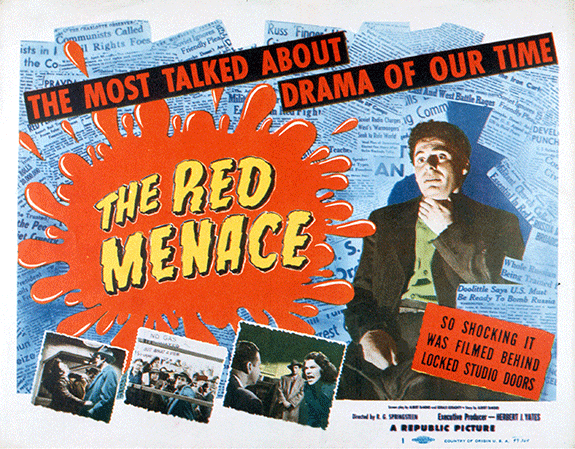‘Evolved Russian Meddling’ Narrative Set To Taint 2020 Election As NYT Points To Africa Testbed
The specter of ‘Russian disinformation’ is set to feature prominently during next year’s election, leaving its diabolical red asterisk next to any populist victories Republicans may score in 2020. What’s more, this isn’t your typical ‘run of the mill, didn’t affect the outcome of the election’ meddling; According to the New York Times, Russia’s ‘manipulation techniques’ have evolved.
To review, a Russian ‘troll farm’ spent approximately $100,000 on Facebook ads (the majority of which were bought after the 2016 US election) and operated on other social media platforms with the goal of ‘sowing discord‘ via hyperbolic posts on immigration, black identity politics and Jesus arm wrestling Satan in the name of Donald Trump.
The majority of the Russian ad spend happened AFTER the election. We shared that fact, but very few outlets have covered it because it doesn’t align with the main media narrative of Tump and the election. https://t.co/2dL8Kh0hof
— Rob Goldman (@robjective) February 17, 2018
And while former Deputy (then acting) Attorney General Rod Rosenstein announced that Russian meddling over Facebook, Instagram and Twitter was not found to have altered the outcome of the 2016 election (and Putin somehow hacked Hillary’s campaign so she ignored key states), it appears that the red menace is back – and Russian manipulation techniques have ‘evolved’ after test-bedding an ‘enormous Facebook campaign in parts of Africa.’

Facebook said on Wednesday that it removed three Russian-backed influence networks on its site that were aimed at African countries including Mozambique, Cameroon, Sudan and Libya. The company said the online networks were linked to Yevgeny Prigozhin, the Russian oligarch who was indicted by the United States and accused of interfering in the 2016 presidential election.
Unlike past influence campaigns from Russia, the networks targeted several countries through Arabic-language posts, according to the Stanford Internet Observatory, which collaborated with Facebook to unravel the effort. Some of the posts promoted Russian policies, while others criticized French and American policies in Africa. Russians also worked with locals in the African countries to set up Facebook accounts that were disguised as authentic to avoid detection.
The effort was at times larger in volume than what the Russians deployed in the United States in 2016. While the Kremlin-backed Internet Research Agency posted on Facebook 2,442 times a month on average in 2016, one of the networks in northern and central Africa posted 8,900 times in October alone, according to the Stanford researchers. –NYT
Yes, according to former Facebook exec Alex Stamos, now-director of the Stanford Internet Observatory, Russia’s ‘Africa campaign’ has implications for the United States ahead of the 2020 presidential election.
He said it was highly likely that Russian groups were already using the same model of working with locals in the United States to post inflammatory messages on Facebook. By employing locals, he said, Russians did not need to set up fake accounts or create accounts that originated in Russia, making it easier to sidestep being noticed.
“We will see a model where American groups are used as proxies, where all the content is published under their accounts and their pages,” Mr. Stamos said. –NYT
“They are trying to make it harder for us and civil society to try and detect their operations,” said Facebook’s head of cybersecurity policy, Nathaniel Gleicher.
This isn’t to say that Russia isn’t operating disinformation campaigns online – however one should take reports of ‘election meddling’ with a serious grain of salt given what we know about the impact of said operations.
Facebook faces a difficult adversary in Russia. The country had previously indicated that its disinformation techniques were changing and that it was aiming to work with locals on online influence campaigns.
In Ukraine, which held a presidential election this year, local authorities announced in March that they had arrested a Russian agent in the capital, Kiev. The agent, they said, had been ordered by his Russian handlers to “find people in Ukraine on Facebook who wanted to sell their accounts or temporarily rent them out.”
The latest campaign in central and northern Africa is the first well-documented case of Russia “franchising,” or outsourcing, its disinformation efforts to local parties, said Facebook and the Stanford researchers. It’s unusual for a nation to try to influence so many countries at once, they said. –NYT
In short, the red menace has wrapped its tentacles more firmly around the interwebs – infecting minds and influencing elections. Rest assured, any victories which pose a threat to the establishment will surely have Russian fingerprints all over them.
Tyler Durden
Wed, 10/30/2019 – 14:46
via ZeroHedge News https://ift.tt/334RGV2 Tyler Durden

